Fluid & Heat Blog Posts
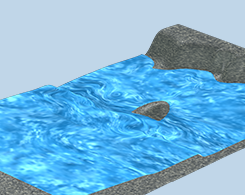
Analyzing Tsunami Waves with an Established Benchmark Model
The 1993 Hokkaidō earthquake in Japan caused tsunami waves that reached massive runup heights — one recorded wave in Monai Valley even reached as high as 32 m (~104 ft)!
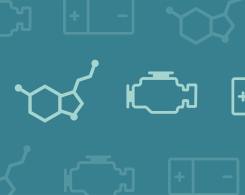
The Science Behind Cooking Caramel
Whether you’re adding it to brownies, crème brûlée, or an ice cream sundae, cooking caramel is a precarious task: One wrong move and it could burn and taste bitter or recrystallize and harden.
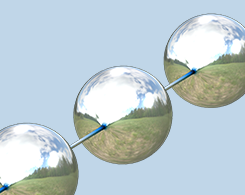
Modeling the Behavior of an Oldroyd-B Polymer
Have you ever noticed that when a certain force is applied to a viscoelastic fluid, the fluid starts to look like beads on a string? Here, we showcase an example that uses an Oldroyd-B polymer.
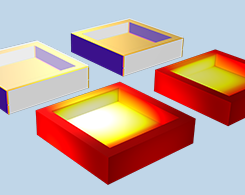
Which Radiation Interface Should I Use for My Heat Transfer Model?
Compared to the mechanisms of heat transfer by conduction and convection, heat transfer by radiation has unique characteristics. How should you account for radiation in your heat transfer models?
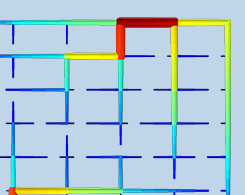
Designing District Heating Networks Using Topology Optimization
District heating networks help power plants reach high efficiencies by utilizing cogeneration, which is especially helpful in the winter. How does topology optimization fit in? Keep reading…
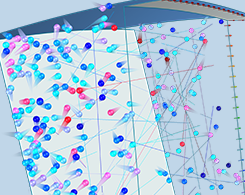
How to Analyze Turbomolecular Pumps with COMSOL Multiphysics®
Modeling gas flow in a turbomolecular pump calls for specialized numerical methods, because at such low pressures, the gas molecules rarely collide with each other.
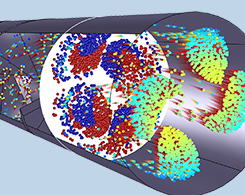
What Formulation Should I Use for Particle Tracing in Fluids?
The COMSOL® software gives you 4 equation formulation options when modeling particle tracing in fluids: Newtonian; Newtonian, first order; Newtonian, ignore inertial terms; and Massless.
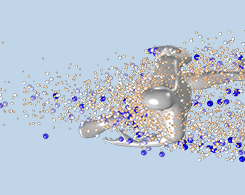
Modeling Droplet Flow in an Open Space with COMSOL Multiphysics®
If you are jogging six feet apart from someone else, should you both be wearing masks? Simulation was used to analyze the motion of particles between two runners in an open space to find answers.
